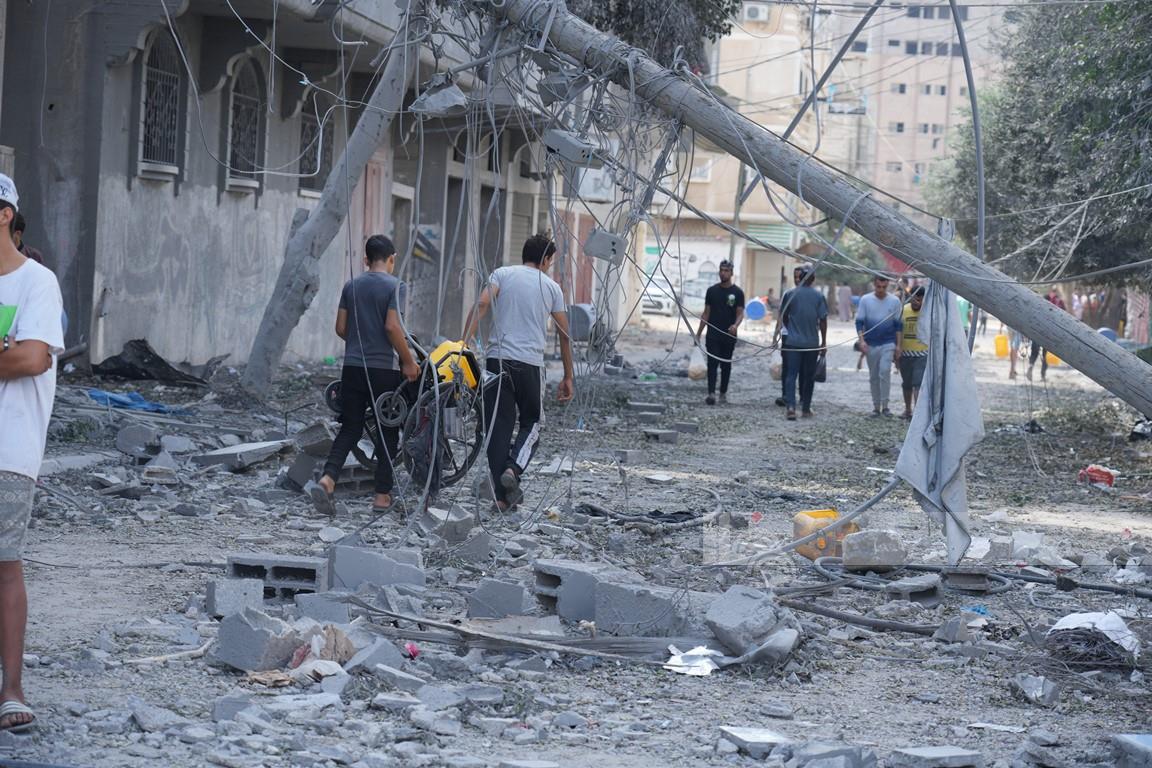Gaza’s northern governorates are completely cut off from water supply, the UN’s humanitarian office has said.
A lack of water and fuel shortages are exacerbating the dire humanitarian situation in Gaza, the United Nations Office for the Coordination of Humanitarian Affairs (OCHA) said in two updates on Monday.
While two pipelines are currently supplying southern and central Gaza with approximately 1,100 cubic metres of water every hour, a Monday OCHA overview said Gaza’s northern governorates are completely cut off from clean water access.
The overview also said that due to fuel shortages, 60 waterwells, 2 desalination pumps, sewage pumps and stations and wastewater treatment systems have been critically impacted. These systems are crucial for drinking water and sanitation.
Further, on December 4, the Wall Street Journal reported that Israel was considering flooding damage Hamas’ tunnel networks with sea water.
Observers have noted that this would have long lasting consequences on Gaza’s groundwaters and aquifers.
In a TASS, Russian News Agency report on December 8, Russia’s First Deputy Permanent Representative to the UN, Dmitry Polyansky, echoed the sentiment that Israel’s flooding of Gaza tunnels is criminal.
“War crimes are snowballing – shocking reports have been circulated in recent days that Israel plans to flood underground facilities in the Gaza Strip with seawater,” Polyansky said.
“Western-biased mass media don’t even try to think about the potential consequences of pumping thousands of cubic meters of seawater, i.e. salt water, into soil. Obviously, it is a real plan of action to undermine the enclave’s fragile agricultural capacities, because seawater will inevitably contaminate Gaza’s subsoil waters,” the Russian diplomat added.
The United Nations estimates that over 1.8 million Palestinians in Gaza are internally displaced, with 1.1 million seeking shelter in 156 UN Relief and Works Agency for Palestine Refugees facilities.
With World Food Programme supplies running low and Gaza’s last functioning flour mill being destroyed on November 15, the average wait time to receive half of the normal bread portion is now six hours, Mondays’ OCHA overview added.
In a separate flash update published by OCHA on Monday, with limited aid operations in the Rafah governorate, large crowds of internally displaced persons are forced to wait for hours for food, water and shelter.
Due to too few lavatories, there are grave concerns over the spread of disease with open-air defecation becoming more widespread, the flash update added.







